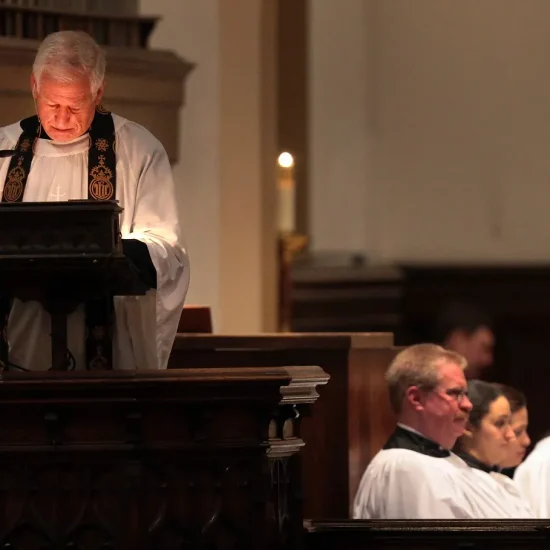
Our nation finds itself at a critical moment of wrestling. And it might just lead to a biblical moment. But will Christians lead the way?
In Genesis 32, Jacob wrestles all night with a mysterious being. It could’ve ended with him giving up. Instead, he kept wrestling and seeking a more blessed future. And so, he received a new name: Israel. No longer known as “he deceives” (Jacob), but as “he wrestles with God” (Israel). A new name. A new meaning. A new future.

Brian Kaylor
As a nation we wrestle. We wrestle with our past. We wrestle with our deceptions. Will we give up? Or will we chart a new course with new names?
Some leaders in Congress propose changing the names of 10 U.S. military bases whose names currently honor Confederate generals who fought against this country. The key opposition so far came from Senator Josh Hawley of Missouri, who often speaks of his Christian faith.
Leaders at James Madison University in Harrisonburg, Virginia — where I used to teach — this week finally backed calls by students and faculty to change the names of three buildings whose names currently honor Confederate leaders.
More than 100 public schools across the country still bear the names of Confederate generals and politicians despite calls for years to change the names.
Some Black Southern Baptists urged Southern Baptist Theological Seminary in Louisville, Kentucky, to change the names of buildings that currently honor slaveholders and Confederates. But the school’s president, Al Mohler, has insisted in the past he won’t do so.
Last year, Furman University in Greenville, South Carolina, detailed its ties to slavery and decided to change the name of one building (though not the school’s overall name) as well as name several places on campus after African Americans — including a plaza now named for an enslaved person forced to work on the campus.
All of these debates matter because names matter.
The Bible gives close attention to the meaning of names. God changed Abram’s name to Abraham, and then Jacob’s name to Israel. God told the prophet Hosea to give his children names that served as broadsides against the nation: “not pitied” (Lo-ruhamah) and “not my people” (Lo-ammi). Jesus rechristened Peter as Rock. And the preacher to the Gentiles shifted from using his Hebrew name (Saul) to the Latin version of it (Paul).
Names matter.

(Willem-Jan Huisman)
Names can communicate meaning and value. And names can even invoke emotions and change the way we feel about things. It turns out that Juliet was wrong. The female half of Shakespeare’s star-crossed lovers famously asked the question “what’s in a name” before immediately offering her answer: “that which we call a rose by any other name would smell as sweet. “
But scientists discovered otherwise. When presenting people with unknown odors, reactions to how people perceived the odors changed based on the researchers giving the odor a positive, neutral, or negative name. Giving an odor a more positive name led people to rate it more positively!
How much more impact might we see when it comes to names that tell our Black neighbors they are or aren’t valued as fully human?
Changing a name isn’t stripping away history. We all know about Adolf Hitler without honoring him by naming an Army base, our local high school, or a college building after him. A name like Fort Bragg, Robert E. Lee High School, or James P. Boyce Centennial Library aren’t just historical reminders of the past but statements about what we value today and what kind of future we desire.
We currently stand in the stream wrestling with our better angels. Will we give up and keep things the same? Or will we change the deceptive names that hold us back?






